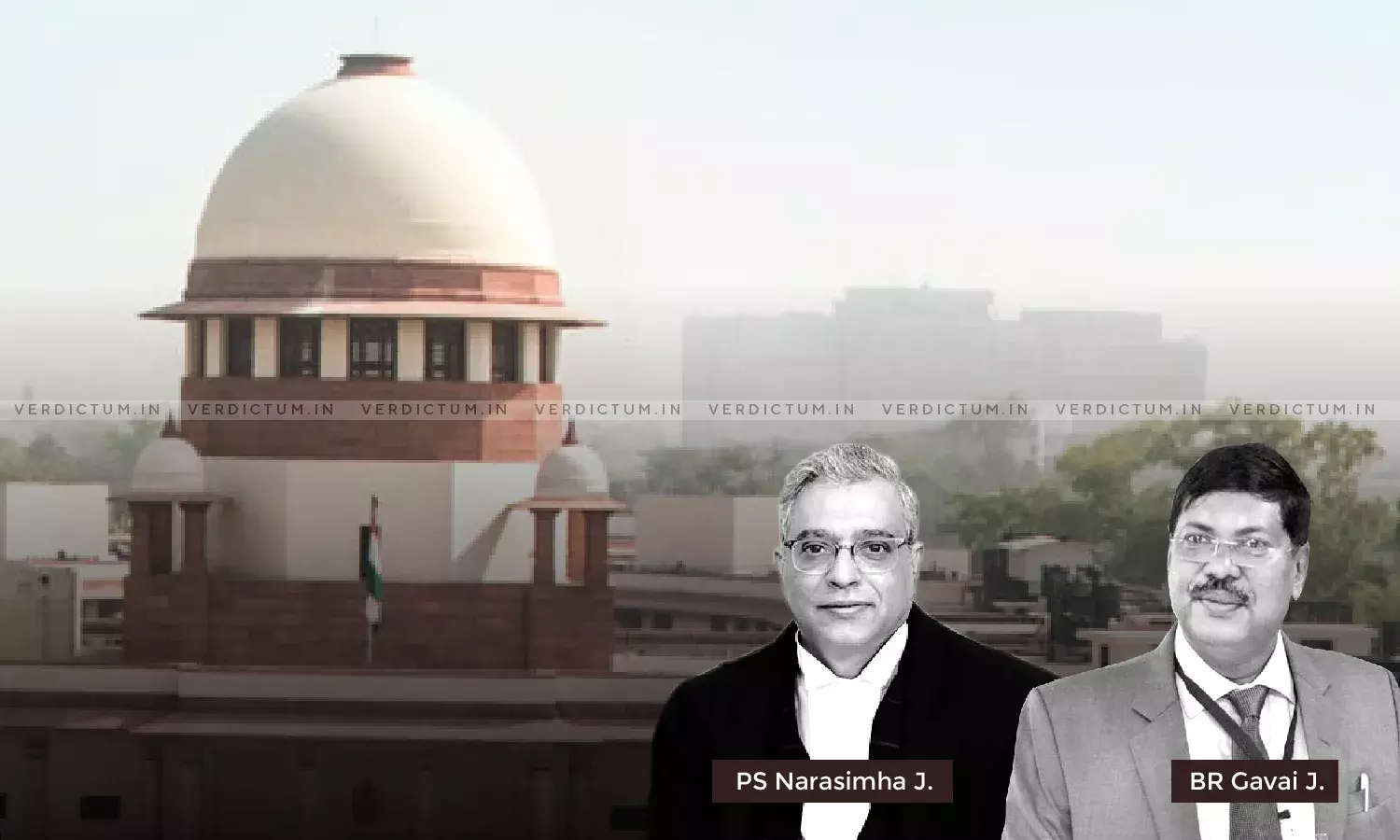Agreement U/s. 120B Forms Core Of Offence Of Conspiracy, Must Surface In Evidence Through Physical Manifestation – SC

The Supreme Court in a theft case has observed that the principal ingredient of offence of criminal conspiracy under Section 120B IPC is an agreement to commit an offence.
While placing reliance on the judgment of State of Kerala v. P. Sugathan and Anr., the Bench of Justice PS Narasimha and Justice BR Gavai held –
"…an agreement forms the core of the offence of conspiracy, and it must surface in evidence through some physical manifestation."
The Court also held that such an agreement must be proved through direct or circumstantial evidence.
In this case, the Appellant was convicted by the Madhya Pradesh High Court for the offences under Sections 201, 380, 435, 457 and 477 read with Section 120B IPC.
Three of the accused employees of Guna Branch of Central Bank of India, were prosecuted for the above-referred offences of theft (of Rs. Six Lakhs from the safe and strong room of the Bank), house-trespass, destruction of valuable security, and other offences. While the main accused, A1 and A2, were convicted and sentenced concurrently given the oral and documentary evidence, as per which the money is proved to have been recovered from their possession, the Appellant – A3 was convicted and sentenced for the very same offences only with the aid of Section 120B of the IPC.
AOR S. Janani appeared for the Appellant while AOR Pashupathi Nath Razdan appeared for the State before the Apex Court.
The Supreme Court noted that with regards to the Appellant, there is neither any overt act attributable to him, nor any recovery of stolen property from him. The conclusion drawn against him is only for the reason that he was in exclusive possession of the set of keys used to open the locks of the main gate, the grill of the strong room and the safe inside it. Hence, his conviction and sentence were based exclusively on the charge of conspiracy under Section 120B of the IPC.
Further, the Bench also noted that the Appellant cannot be solely held accountable for the failure to comply with the Office Manual, and for this reason the Appellant's exclusive possession of the keys cannot render him culpable of the offences as mentioned earlier.
Referring to the facts of the case, the Court observed that the link necessary for proving the charge of conspiracy is entirely missing.
The Bench noted that the Court has to necessarily ascertain whether there was any agreement between the Appellant and A1 and A2.
Thus, the Court held, "The charge of conspiracy alleged by the prosecution against the Appellant must evidence explicit acts or conduct on his part, manifesting conscious and apparent concurrence of a common design with A-1 and A-2."
The Court held that in accepting the story of the Prosecution, the Trial Court as well as the High Court, proceeded on the basis of mere suspicion against the Appellant.
"It is not necessary that there must be a clear, categorical and express agreement between the accused. However, an implied agreement must manifest upon relying on principles established in the cases of circumstantial evidence," the Bench added.
The Court also held that the Prosecution has failed to produce any evidence to satisfy the Court that there was a prior meeting of minds between the Appellant and A1and A2.
"There is no physical manifestation of such a concurrence extractable from surrounding circumstances, declarations, or the conduct of the Appellant. The evidence is shorn of even a passive acknowledgment of conspiracy of the Appellant with the accused, let alone heralding a clear and conscientious participation of the Appellant in the conspiracy," the Court observed.
Thus, the Bench held that the Prosecution has failed to establish the existence of any agreement between the Appellant, A1 and A2, which is quintessential for a charge under Section 120B IPC, therefore the Appellant is entitled to be acquitted of the charge of criminal conspiracy.
Accordingly, the Court allowed the appeal and set aside and quashed the impugned judgment of the High Court and acquitted the Appellant of all the charges.
Cause Title – Ram Sharan Chaturvedi v. The State of Madhya Pradesh
Click here to read/download the Judgment

